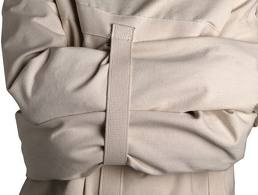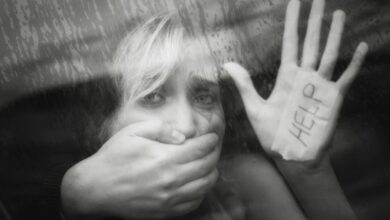Dealing With Compulsive Behaviour

If you suffer from any type of compulsive disorder, which results in the uncontrollable urge to do something or think about doing something repeatedly, you may have obsessive compulsive disorder, or OCD.
 The American Academy of Family Physicians explains that every 2 or 3 people out of 100 have some form of obsessive compulsive behavior. Visiting a therapist or your family doctor, will confirm the diagnosis.
The American Academy of Family Physicians explains that every 2 or 3 people out of 100 have some form of obsessive compulsive behavior. Visiting a therapist or your family doctor, will confirm the diagnosis.
Step 1
Write down your behavior on paper or in a journal. This will allow for reflecting back so as to pinpoint a trigger that may have occurred beforehand. The Help Guide website states that it is normal for most people to occasionally go back and recheck something over again, but they usually have a reason for doing so. People who have obsessive compulsive behavior may not have a theory or reason as to why they are constantly washing their hands or checking to see if they turned off the light switch. Bring the journal with you to your doctor’s appointment so he can analyze your history with OCD.
Step 2
Stop yourself for a moment before you feel triggered to act compulsively. KidsHealth explains this is called “bossing back.” It allows you to get angry with the behavior and regain control. Use this method of treatment with compulsive hand washing, hoarding, checking, counting, arranging and grooming. It may help you gain control over your anxiety and your desire to repeat behavior.
Step 3
Visit your family physician. This should be the first thing you do if you think you may need help controlling your obsessive behavior. He will run blood work and other tests to rule out any type of underlying medical condition that could mimic OCD behavior. If he makes a diagnosis, he may refer to you a therapist or psychologist for more in-depth treatment.
Step 4
Speak to your physician about medications. There are several that may help you control your symptoms of OCD, suggests MedlinePlus. Medications may be used to also treat depression and anxiety. Selective serotonin reuptake inhibitors such as citalopram, paroxetine and fluoxetine are often effective at curbing symptoms and behavior of OCD. Medications along with behavioral therapy will help keep symptoms under control and teach you how to retrain your brain to identify the triggers of your OCD.
Step 5
Attend regular behavioral therapy sessions. Behavior therapy and psychotherapy will help you learn how to control your thoughts and give you the coping skills you need to live a healthy life, explains MayoClinic.com. Your therapist may work directly with you on exposure therapy so you can work through feelings of compulsion and doubt. Seeing a therapist regularly will help prevent relapse and allow you to properly manage unhealthy thoughts and behaviors that may suddenly arise.
Tips and Warnings
- You may have more than one mental illness. Make sure you discuss all your symptoms with your doctor when you see him. This will help with getting you the right type of medication. Suggest family therapy to those who are close to you. OCD behaviors affect more than just you; they can affect everyone around you.
- If you have thoughts of hurting yourself or someone else, seek medical attention immediately, do not wait. Contact the National Suicide Prevention Lifeline (see Resources




